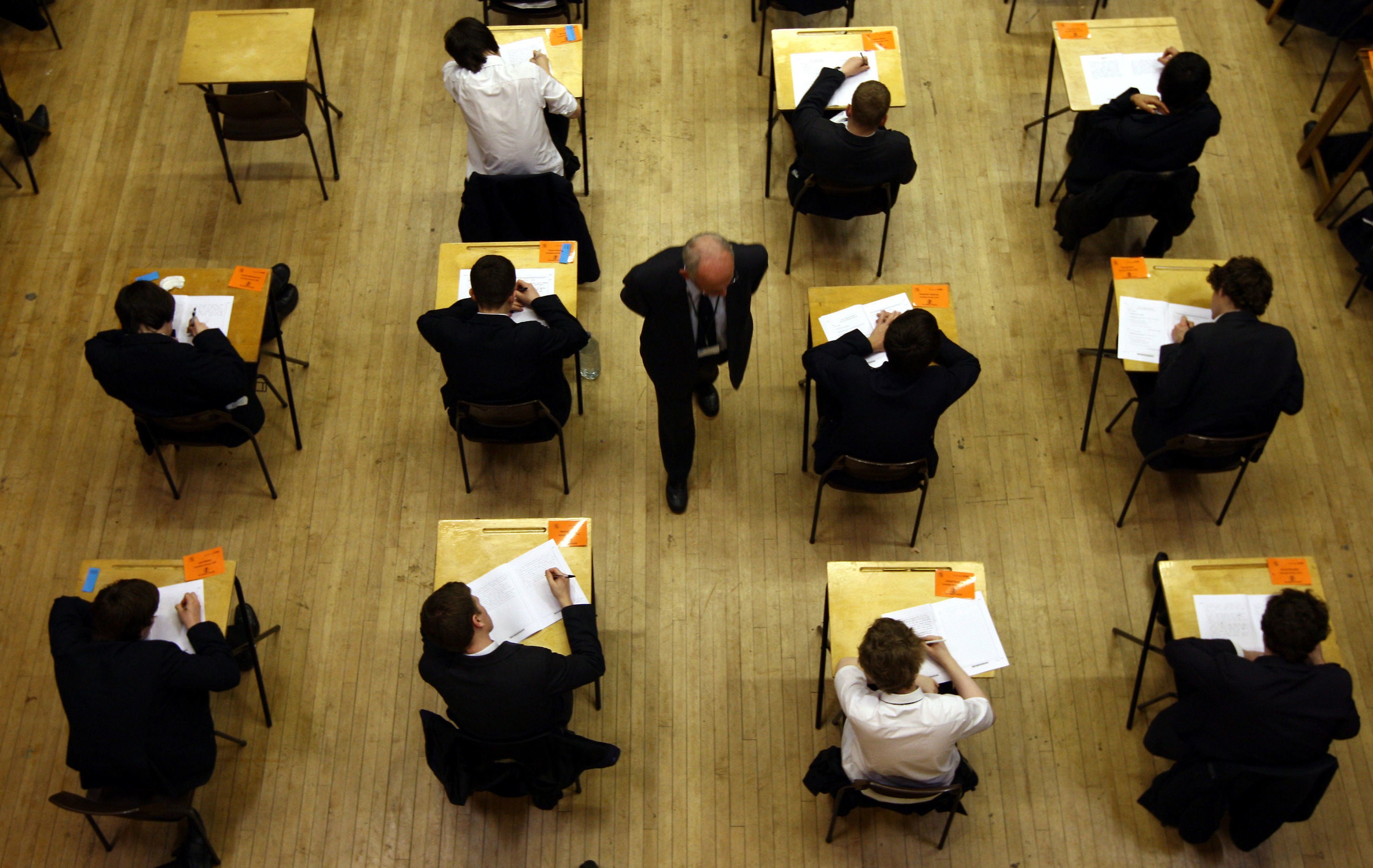What time do A Levels results come out on Thursday and what can students expect?
A level results time, UCAS Track information and everything you need to know

Your support helps us to tell the story
From reproductive rights to climate change to Big Tech, The Independent is on the ground when the story is developing. Whether it's investigating the financials of Elon Musk's pro-Trump PAC or producing our latest documentary, 'The A Word', which shines a light on the American women fighting for reproductive rights, we know how important it is to parse out the facts from the messaging.
At such a critical moment in US history, we need reporters on the ground. Your donation allows us to keep sending journalists to speak to both sides of the story.
The Independent is trusted by Americans across the entire political spectrum. And unlike many other quality news outlets, we choose not to lock Americans out of our reporting and analysis with paywalls. We believe quality journalism should be available to everyone, paid for by those who can afford it.
Your support makes all the difference.Students are eagerly awaiting their A-level results this week, having sat exams for the first time since the coronavirus pandemic.
Here is all you need to know ahead of results day:
When are A level exam results in 2022?
A-level results are out on Thursday August 18, while GCSEs will follow a week later on August 25.
The results of T-levels – described by the Government as new qualifications helping young people progress on to skilled employment, university or apprenticeships – will also be published for the first time on August 18.
What time will A level results be released in 2022?
A level results have, in previous years, been released under embargo by the exam boards at 6am. Each institution is responsible for distributing exam results so check with teachers to find out when you can pick up your results.
Will Ucas Track update at midnight?
Ucas Track will not update at midnight, contrary to the popular myth. The website is usually unfrozen around 8am but it will not provide A Level results. It will tell you whether your application to university has been successful or unsuccessful.
What is expected?
It is generally accepted grades will take a hit this year, following an exceptional two years for schools and colleges due to the coronavirus pandemic.
The Government has said grades are still expected to be higher than in 2019 – the last year GCSE, AS and A level students sat summer exams before the pandemic hit.
Education minister Will Quince said grades are likely to drop this summer compared with last year, and then again in 2023, as part of a transition back to pre-pandemic arrangements.
Was anything done to try and support students sitting exams for the first time since the pandemic?
The Department for Education said exams would be graded more generously this year “providing a safety net for students”.
Students were given some information in advance to help “focus their revision” and exam boards provided advance information for exams in most subjects.
Pupils were given a choice of topics or content in some other GCSE subjects.
Exam boards provided a sheet of formulae and an updated equation sheet for students sitting their GCSE maths, physics and combined science exams.
So, with grades down, will students struggle to get into the university of their choice?
Some courses and providers will “undoubtedly” be more competitive this year, the chief executive of Ucas said earlier this summer.
Clare Marchant, in a blog published in June, said 49% of teachers had told the admissions service they were less confident that their students would get their first choice of university compared with previous years, while around two in five teachers expected their students to use the clearing process.
Professor Alan Smithers, director of the Centre for Education and Employment Research at the University of Buckingham, has predicted there could be 80,000 fewer top grades – A* or A – awarded than in 2021, leaving around 40,000 students possibly missing out on their chosen course or university.
In response to Prof Smithers’ report, Ucas said it was predicting a “record, or near record, number of 18-year-olds getting their first choice this year”, but that “as in any year, some students will be disappointed when they receive their grades”.
What can students do if their results are not what they had hoped and they do not get accepted to their first choice course or university?
Students can use the clearing process to see what courses or universities might be available to them if they need a plan B.
Ucas said the figures for courses available are “dynamic” as universities and colleges move their courses in and out of clearing in the period ahead of results day on Thursday.
The admissions service has created a series of podcasts to help students prepare for exam results day and said it will have more than 250 people supporting students on its different channels on Thursday. Students can visit www.ucas.com/contactus to find out more.